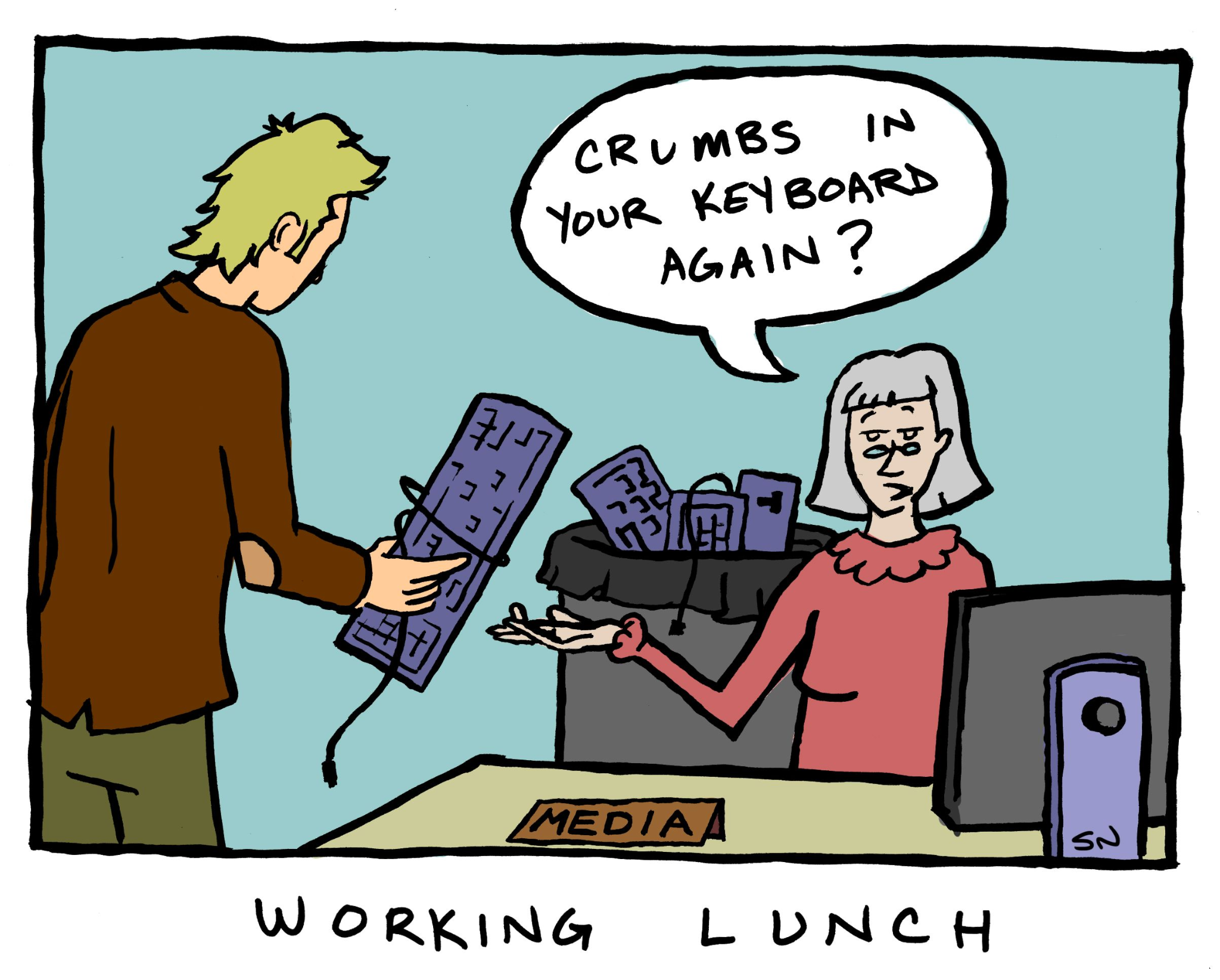On Chunking Your Time
Is your workday full of interruptions? Do you find it hard to find a dedicated window of time to sit and get stuff done? Chunking might be the solution for you!
Living in a digital era, we are interrupted more than ever. Even if you ignore the incoming messages on your phone, research has shown that the push notifications (that’s the little message that comes up when your phone is locked) still derail our focus through divided attention. Some studies even suggest it could take up to 23 minutes to get back to focusing again. And when the average person gets 46 push notifications a day, that basically means we don’t have a wild shot at focusing. We haven’t even accounted for workplace IMs, emails, phone calls, computer updates, and regularly scheduled meetings.
Did I mention... Covid, working from home, kids and pets running around, and struggling to focus on anything in general?
I work in a job where I often have a meeting every 30 mins. It’s not uncommon to have 6 hours, 8 hours, or 10 hours a day of video meetings (yes, I struggle to eat, stand, or even run to the washroom). THEN I have to figure out how to actually do my work. So this problem is close to my heart.
Working through lunch is a reality for many
Scholar Leslie Perlow refers to this phenomenon as Time Famine, which she describes as the pervasive feeling of having insufficient time in daily life. Perlow’s study focused on software developers across the product development lifecycle (that just means the process of creating new software from start to finish). Just like me, the software engineers only had very short blocks of individual time in between interactive tasks like meetings. The engineers reported feeling like they had little to no control of their time, because the interactive tasks were often framed as mandatory or urgent requests. As a result of all these urgent requests, the engineers ended up feeling anxious about upcoming interruptions that would lift them out of concentrated work and they had tremendous loss to their work productivity.
You might think you’re multitasking, but you’re not
There are a couple problems with being interrupted all the time. It takes a really big toll on productivity. The software engineers couldn’t focus and felt like they weren’t effective, like their efforts weren’t leading to impact.
What a crummy feeling it is to feel ineffective. Scholars have actually found that this feeling of ineffectiveness can lead to burnout. Research has found a connection between frequent interruptions and feeling like you didn’t accomplish anything meaningful at work. So basically frequent interruptions lead to less productivity, which leads to feelings of ineffectiveness, which leads to burnout.
To save the poor old engineers from going batty, Perlow suggested they use a technique called chunking where they block off time for uninterrupted work. The engineers spent three mornings a week having uninterrupted quiet time, leading to a TWO-THIRDS INCREASE in productivity!! Just from having three mornings a week of uninterrupted time!! The rest of the time, they were able to help each other and interact. But by holding back some focused time for themselves and their task, they were able to get things DONE.
Don’t let this be you!
If this sounds like a technique you’d be open to trying, let me give you some tips:
Chunking time doesn’t mean just blocking yourself from urgent work requests. You’ve got to block yourself from other interruptions, too. Make sure the kids are being looked after by someone else and tell them not to distract you until the blocked time is finished. Put your phone and work IM on Do Not Disturb mode. Make your work environment sensory-friendly (maybe that means wearing noise-cancelling headphones). Distractions are tempting, especially when work is hard, but if you can sink into it, you’ll feel a great sense of reward from the focus, so don’t give yourself reasons not to achieve those psychological benefits!
Try grouping similar tasks together in your focused time. Switching between very different tasks can be cognitively taxing. Flowing from one task to a like task will help maintain the momentum.
Chunks need to be at least an hour (if not more!) depending on your work or home situation. Try to protect that time in order to see the benefits of time chunking.
Actually write your schedule down. Block your calendar, write it on a sticky, and let everyone know your intention to focus.
Make tough decisions. Someone asks you for help or a coffee chat, actually ask yourself “will I have enough uninterrupted time today to focus and get my work done?” or “is this urgent?”. If the answer is no, try pushing those requests to a day where you might have more time.
Pro tip: organize your schedule the night before. Doing it in the morning might be too late to block enough time. I find that doing my scheduling the day before allows me to better mentally prepare for the day ahead and benefit from the sense of control over my time.
The fact that I am writing a post to coach you on how to protect your time at work is evidence of a new modern work culture that has friction with the way our human minds work and suggests an explanation for spiking levels of workplace stress and burnout. I encourage you not to sit idly by and passively take a toll on your well-being, but instead introduce some simple guardrails to do and feel your best in the workday (or, in many cases, the work morning, day, evening, and night).
“Lost time is never found again.” – Benjamin Franklin.
Love,






